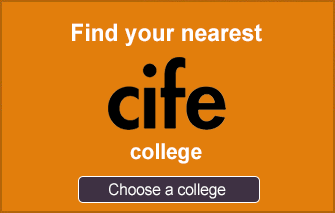The last eighteen months has seen a period in which educational institutions have had to be innovative and quick to adapt in order to survive and fulfil their mission. After yet another year of demands for schools to do a better job and, contradictorily, at the same time ensure that exam grades are not higher than in previous years, it is opportune to reflect on what lessons might be learnt from the tutorial college sector.
Schools seem to have become one of the remaining lines of defence against well-resourced cultural forces that inculcate anti-educational values in young people. Indeed, the Principal of Bath Academy still to struggles to compete with Captain America. The attention of adolescents is more easily captured by those profit-driven corporations offering entertainment and pleasure requiring no mental effort. The appreciation of complexity and thoughtful reflection are not valued, whereas instant gratification and short attention spans are rewarded. One of the central tasks of schools today is to free young people not only from ignorance and the limitations of their individual backgrounds, but also from a sterile culture of mental passivity. Today schools must model the power of knowledge and thoughtfulness.
However, tutorial colleges and schools are not just delivery sites for educational services - like GP surgeries – but communities in which people spend long periods of time together. Creating decent communities in which individuals develop character and work hard might not be the most ambitious ideal but, when pursued consistently and with seriousness, it is an effective force against anti-educational values. A college’s students and their families greatly affect its possibilities and it is in the school’s interests to nurture those pro-education families who have chosen to send their sons and daughters to us. The factor of school choice in the independent sector means that there is at least a minimum of student and parent commitment to the school, and it is student commitment to learning that is the key ‘selective’ criterion of admission to effective schools rather than academic meritocracy.
Somewhat paradoxically, the internal freedom of tutorial colleges to create communities with such an ethos depends on the success of its external accountability. We need to convince the wider educational world, as well as parents, that we are deserving of our quirky independence. Because tutorial colleges are not guaranteed funding either from central bodies or parents committed to eight years of schooling, we must always deal in a changing social marketplace. Such colleges must raise funds, attract students, keep compliance inspectors at bay, get students into serious universities and avoid too many scandals. Coping with constant threat of jeopardy helps create a sense of identity, loyalty and a boost of daily energy. The recent threats as a result of the pandemic: lack of re-sit students, hesitancy of prospective international students, problems of staffing and keeping up with almost daily changes in compliance demands have perhaps been borne more easily by tutorial colleges than other schools because we are so used to responding quickly to change and dealing with a lack of security. The practical reality of tutorial college independence and size means that for the adults involved, the school is their own and must survive by their collective efforts.
Very able students do well in all but the worst schools. But the lesson that tutorial colleges can teach others is that most students – even the distinctly average – can learn far more than the average school demands of them and far more than they think they can learn. When everyone must be treated equally because everyone is paying the same fees, privilege engenders a democracy of access to academic opportunity. All students, not just the high fliers can be given challenging and worthwhile educational tasks and incentives to work hard. Tutorial colleges don’t create incentives where none existed, but build on and exploit for the purpose of learning the incentives that students and their families already possess at varying levels of commitment, especially that of progressing to competitive universities. Universities requirements still dominate the way in which tutorial colleges operate, although this may be less so as the most selective universities care more about aptitude rather than learning and the least selective care about attracting enough students to survive.
This article was written by Tim Naylor, Principal, Bath Academy
Return to the list of CIFE Intercollegiate Articles

